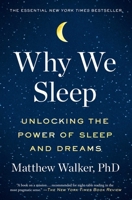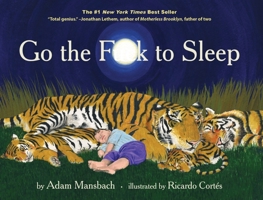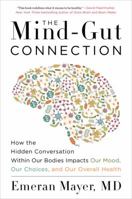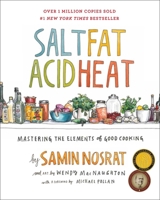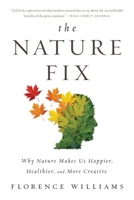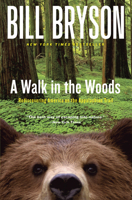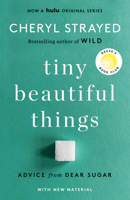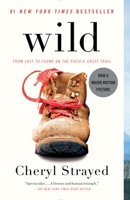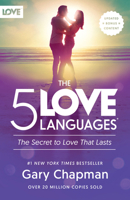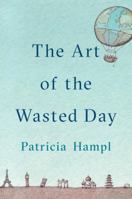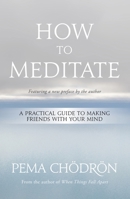Love Thyself
The Importance of Self-Care
By Ashly Moore Sheldon • May 15, 2019
The Importance of Self-Care
The Importance of Self-Care
You know how when flight attendants review safety instructions, they tell you to put on your own oxygen mask before helping others? This same advice should be applied to our daily lives. If we don't care for ourselves, we won't be equipped to help anyone else. As a woman, I often feel guilty when I take time for myself. But I know that if I don't allow myself to recharge, refuel, and refresh, I won't have anything to give to others. Here are five ways you can nurture yourself.
Get Some Sleep
Why is it so hard to get catch some solid z's? According to the American Sleep Association 50—70 million US adults suffer from sleep disorders. We should be getting seven to nine hours a night but 40 percent of people aged 40—59 report falling short of that. In Why We Sleep, UC Berkeley Professor Matthew Walker answers important questions about why sleep is so important. Citing cutting-edge scientific breakthroughs and decades of research, Walker explains how to get better sleep and improve your life.
If your sleep deprivation can be blamed on a certain little one, check out this cheeky bedtime story. It may not put your tot to sleep, but you'll get a good laugh at least.
Eat Good Things
The word diet can bring up some bad associations, but what we put in our bodies affects more than just our weight. It has been shown to impact our moods, behavior, and long-term health in powerful ways. In Emeran Meyer's The Mind-Gut Connection, he lays out evidence of the profound connection between the microbes in our gut and our mental health. Drawing on his vast experience as a gastroenterologist, Meyer provides concrete strategies for cultivating a healthy gut and a thriving microbiome.
One of the best ways to eat healthy is to make your own food, using clean, unprocessed ingredients. To bone up on your cooking skills, peruse the pages of Chef Samin Nosrat's Salt, Fat, Acid, Heat, a veritable atlas to the world of flavor. Nosrat demystifies these four elements of good cooking and presents a canon of 100 essential recipes for any kitchen. This book will give you the foundation to make delicious food on your own.
Breathe Deep and Look At the Sky
Exercise and nature often go hand in hand, and both have been shown to decrease stress and increase happiness. When I get cranky, my family knows to send me outside to play in the dirt or take a long walk. Florence Williams explains this correlation in The Nature Fix: Why Nature Makes Us Happier, Healthier, and More Creative. Modern life has led to an "epidemic dislocation from the outdoors," Williams says, and it's destructive to our mental and physical health. The therapy is straightforward. "The more nature, the better you feel."
In A Walk in the Woods, the ever-entertaining Bill Bryson takes the reader along as he sets out with a friend to hike the Appalachian Trail from Georgia to Maine. Marked by misadventure and witty anecdotes, Bryson's account will leave you both amused and inspired.
Set Boundaries and Strengthen Relationships
We all have those friendships that often seem like more work than fun, or that relative who leaves you seething after family get-togethers. Setting boundaries and learning how to communicate are the keys to navigating these difficult connections. One of my favorite relationship books is Tiny Beautiful Things: Advice on Love and Life from Dear Sugar by Cheryl Strayed. Before writing her bestselling memoir Wild, Strayed worked anonymously as online advice columnist Sugar. This selection of some of her best columns will make you laugh and cry, while giving insight into some of your own interpersonal challenges.
In The Five Love Languages, therapist Gary Chapman argues that each person has a unique way to give and receive love. By identifying and understanding your own "love language" and that of your significant other, you will learn how to best show your love to one another. This philosophy can be applied to all of your relationships and, since publishing his original book in 1992, Chapman has put out several volumes relating to other types of relationships.
Unplug. Chill Out. Relax.
One of the most important things we can do for our mental health is to set aside time for, well, nothing. The world we live in is chaotic and frenzied, our minds taxed by myriad distractions and responsibilities. The constant presence of technology, i.e. smartphones, adds another layer of stress to our already busy psyches.
In The Art of the Wasted Day, a gorgeous collection of personal essays, author Patricia Hampl extolls the virtues of making time for daydreaming. Hampl's lyrical, airy style effectively transports you into the still, quiet space that she prescribes. With her incisive voice and insightful observations, she demonstrates the boundless benefits of letting your mind wander.
For a more structured approach to quieting the chaos, check out How to Meditate: A Practical Guide to Making Friends with Your Mind by renowned teacher and author Pema Chödrön. An American-born, Tibetan Buddhist nun, Chödrön outlines the benefits of meditation and provides gentle, yet clear, guidance for how you can develop your own practice.
Bottom line?
Unless we set aside the time for self-care, it won't happen. Block out some time on your schedule every day to do whatever will feed your soul, whether that’s more sleep, time in the kitchen, a hike with a friend, or an hour with a good book. You may feel like you can't spare a moment, but the time out will do you good and you'll come back to your responsibilities with more energy, better productivity, and a greater sense of joy.











